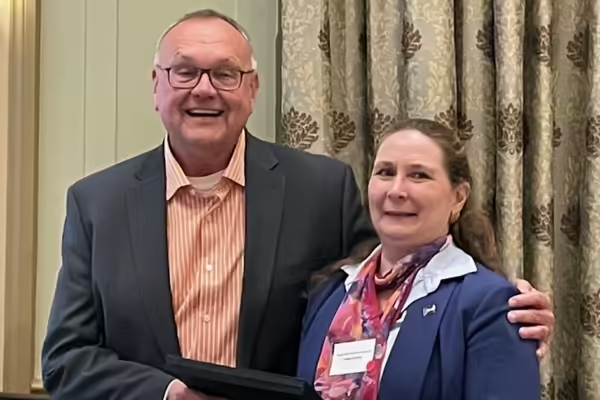
URBANA, Ill. — In Illinois, a committed group of researchers and educators confronted a sobering truth: Latino children were experiencing notable health inequalities, especially evident in the high rates of childhood obesity. This concerning pattern not only jeopardized their current health but also increased the likelihood of enduring chronic health conditions in the future.
Childhood obesity affects twice as many Latino families compared to other population groups. There is a need to promote health and prevent disease in a group with less access to healthcare and education barriers.
Innovative Response
"Abriendo Caminos," an initiative of Illinois Extension, emerged as a beacon of hope. This childhood obesity intervention program was meticulously crafted as a methodologically robust, evidence-based, and culturally sensitive solution. The program was launched as a randomized controlled trial spanning multiple locations: Illinois, California, Iowa, Texas, and Puerto Rico.
The intervention's comprehensive curriculum encompassed nutrition, physical activity, and family wellness, aiming to empower Hispanic families with knowledge and culturally attuned practices. The program's success hinged on family involvement, requiring the participation of at least one parent and child, while whole families were encouraged to join.
Undergraduate students played a pivotal role in the program, receiving training to effectively distribute the Abriendo Caminos curriculum while refining essential skills for their future careers. Likewise, graduate students were key contributors, significantly involved in curriculum development and program implementation management.
Transformative Results and National Recognition
The program's outcomes were heartening dietary improvements among mothers and healthier eating habits established in children. Notably, weight loss was more prevalent than weight gain among the young participants, with 11% moving from the obese to overweight category and 15% achieving a healthy weight. These achievements garnered attention at the National Health Outcomes Conference, where Illinois Extension was lauded for its impactful public health contributions and innovative strategies in preventing childhood obesity.
"The Priester Health Award symbolizes a decade-long, nationwide team effort to create and maintain a culturally adapted family curriculum for healthier children and families," says Margarita Teran-Garcia, assistant dean for integrated health disparities programs. “The success of Abriendo Caminos is due to the contributions of many, including faculty, students, administrators, volunteers, and community members."
Envisioning a Healthier Tomorrow
Abriendo Caminos has proven to be a story of empowerment, transformation, and community solidarity. It has shown that family engagement and cultural relevance interventions can effectuate meaningful and positive changes. The program's national recognition underscores the imperative to adapt and implement such family-oriented strategies across diverse populations, aiming to alleviate the burden of childhood obesity and foster a healthier future for generations to come.
To learn more about the Abriendo Caminos program and the Integrated Health Disparities team, please visit go.illinois.edu/IHD. Additionally, you can gain insights by watching this informative video.
SOURCE: Margarita Teran-Garcia, assistant dean for integrated health disparities programs
WRITER: Herbert Chavez, media communications coordinator, Illinois Extension.
Illinois Extension leads public outreach for University of Illinois by translating research into action plans that allow Illinois families, businesses, and community leaders to solve problems, make informed decisions, and adapt to changes and opportunities. Illinois Extension is part of the University of Illinois Urbana-Champaign College of Agricultural, Consumer and Environmental Sciences.